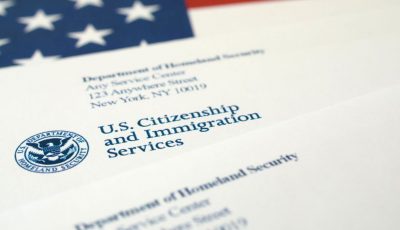USCIS agrees to process rejected LTR applications
U.S. Citizenship and Immigration Services has asked the U.S. District Court for the NMI to give it 90 days to respond to the lawsuit filed by nine long-term resident applicants whose initial applications USCIS had rejected. The extension will give USCIS enough time to process the nine applications once more.
According to court documents, USCIS is requesting to get a three-month extension, on or before Aug. 2, to file a response to the nine long-term residents’ complaint against them. This extension will allow USCIS time to process the re-filings and then negotiate to determine if the case is resolved.
The petitioners will re-file their applications under the Mariana Islands Long-Term Legal Residents Relief Act and USCIS will process the re-filings.
According to U.S. Attorney Shawn Anderson, who is representing USCIS, this is the first request for an extension. “This request is made in good faith and not for the purpose of delay. The undersigned counsel contacted the plaintiffs’ counsel by email on April 28, 2021, and plaintiffs’ counsel has no objections to this request,” said Anderson.
In an interview with lawyer Steve Pixley, who represents the petitioners, he said they are grateful to have come to an agreement and all they ask now is for the court to allow USCIS to process the applications.
“What’s going to happen is we’re going to resubmit all the application packets for my clients, and USCIS agreed to basically expedite the processing of those applications,” said Pixley.
In a separate email to Saipan Tribune, Pixley said: “My clients are very happy that after reviewing our writ of mandamus USCIS has decided to process their applications.”
Between July 20, 2020 and. Aug.1, 2020, the petitioners sent their LTR applications to USCIS in Texas, and USCIS received the applications on July 30, 2020 to Aug. 3, 2020.
On Aug. 25 through Sept.11, 2020, petitioners received a rejection from the USCIS through mail—this was their first rejection.
“The application was filed on an outdated version of this form [Form 1-765]. Please resubmit your application on the current version of this form with the appropriate fees to the address listed at the bottom of this page,” said USCIS. Pixley noted that this letter was dated after the Aug. 17, 2020, deadline mandated by USCIS.
Pixley said the determination of USCIS that the form 1-765 was “outdated” is directly “contradicted by instructions promulgated by USCIS” stating that LTR applicants are required to use the “old edition” of form I-765 for the LTR application until Aug. 25, 2020.
The petitioners resubmitted their applications, this time using the new form 1-765, between Sept. 17, 2020, and Sept. 23, 2020. Between Oct. 5, 2020, and Nov. 6, 2020, the petitioners once again received a rejection from USCIS.
In rejecting the second submission, USCIS’ explanation created a situation from which the petitioners could not escape because of contradictory rules or limitations. USCIS said they will not accept any form 1-955 or form 1-765 for the CNMI LTR status postmarked after Aug. 17, 2020.
On Oct. 29, 2020, Pixley said the petitioners once again submitted their applications and summarized the history and explained why their applications were timely filed. These applications were received by USCIS on Nov. 2, 2020.
Three months later, USCIS refused to process the petitioners’ applications. The petitioners then requested for a writ of mandamus that compels USCIS to accept and process the applications of the petitioners and further relief the District Court deems “just and proper.”



























